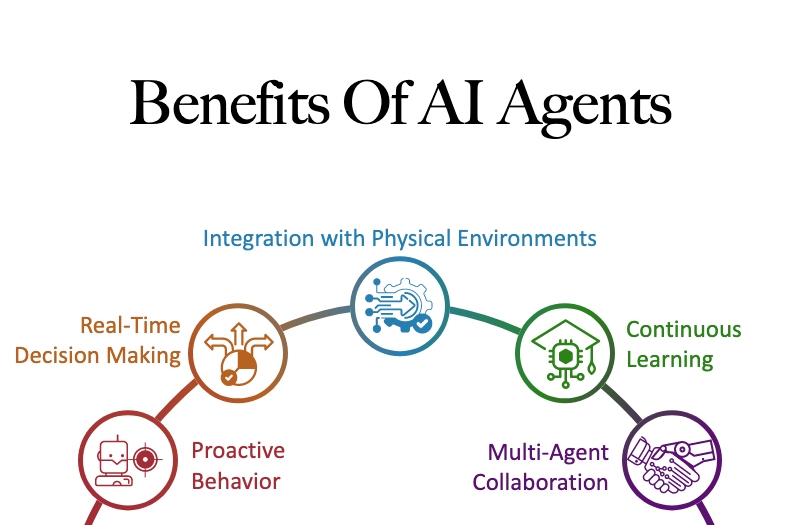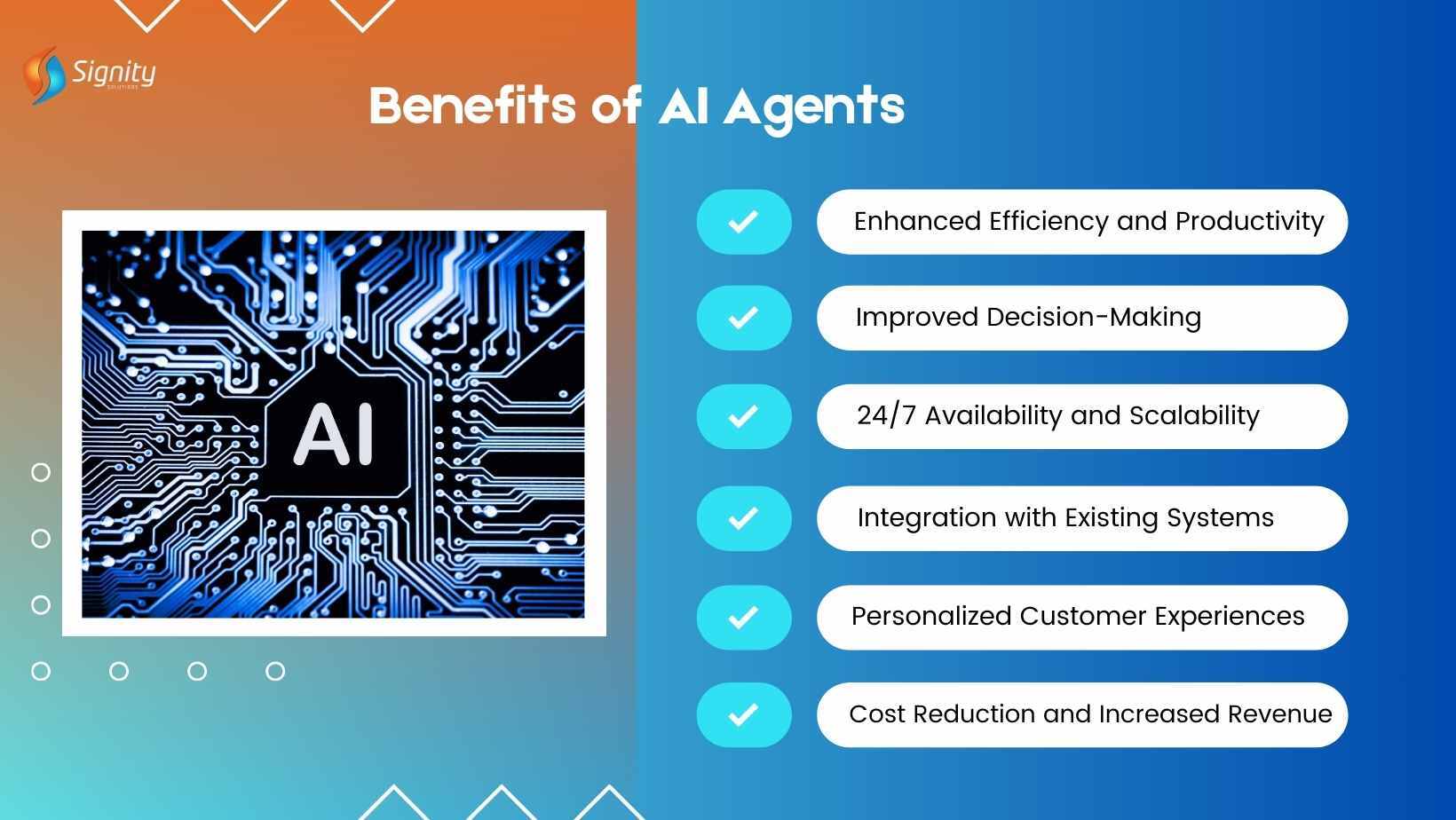Playbook: Preparing Your Organization for the AI Agents Marketplace
The Comprehensive Guide to Understanding the Uses of the AI Agents Marketplace
The AI agents marketplace represents a substantial shift in how businesses can enhance their procedures. By offering a series of AI solutions, this marketplace addresses numerous organizational demands, from automating tasks to improving decision-making. Nevertheless, the combination of these agents is not without its challenges. Understanding the intricacies of this marketplace is vital for businesses aiming to continue to be competitive. What variables should organizations consider prior to embracing AI agents?
What Are AI Agents and Their Key Attributes?
AI agents are advanced software application made to do tasks autonomously or semi-autonomously, leveraging expert system innovations. These agents utilize formulas and information to communicate with their atmosphere, choosing based on predefined standards or found out experiences. Secret functions of AI agents include their capacity to procedure huge quantities of data promptly, promoting real-time decision-making. They often integrate machine learning capacities, allowing them to adjust to new details and boost their performance in time.
AI agents can run in different domains, from consumer service chatbots to intricate data analysis tools. Their scalability allows them to handle several jobs concurrently, optimizing performance. In addition, many AI agents have natural language handling abilities, which improve human-agent communication. Generally, the convenience and knowledge of AI agents make them important possessions across industries, driving development and enhancing operational efficiency.
Checking Out the Various Sorts Of AI Agents
The landscape of AI agents includes various classifications that highlight their unique functionalities. Each sort of AI agent serves one-of-a-kind use situations and applications, varying from customer support automation to intricate information analysis. Comprehending these classifications is crucial for leveraging the complete possibility of AI agents in varied markets.
Classification of AI Agents
While modern technology developments, the classification of AI agents has become significantly crucial to comprehend their diverse performances and applications. AI agents can be categorized into a number of types based on details standards. Responsive agents, as an example, operate solely based on the current situation, lacking any type of memory of past experiences. On the other hand, deliberative agents utilize inner models to plan and choose notified by previous communications. One more classification focuses about freedom degrees, identifying between semi-autonomous and fully independent agents. In addition, agents can be classified according to their purpose, such as individual aides, client service bots, or data evaluation devices. This structured category assists users and designers identify the ideal AI agents for their requirements and helps with effective implementation in numerous setups.
Use Cases and Applications
Recognizing the numerous categories of AI agents leads the way for discovering their sensible applications and make use of cases across different sectors. In healthcare, AI agents assist in medical diagnosis and patient management, optimizing treatment plans and improving individual results. In financing, they enhance operations through automated trading, fraud discovery, and customized customer service. Retail services leverage AI agents for supply management, sales forecasting, and boosting client experiences via chatbots. In production, AI agents maximize supply chains, monitor devices, and enhance production efficiency (AI Agents Marketplace). In education, they promote individualized discovering experiences, adapting to specific trainee needs. These varied applications show the transformative possibility of AI agents, emphasizing their value in driving innovation and effectiveness across numerous markets
Applications of AI Agents in Various Industries

Advantages of Incorporating AI Agents Into Business Workflow
Incorporating AI agents right into organization procedures can substantially enhance performance and productivity, especially when organizations accept their capabilities to automate routine tasks and optimize workflows - AI Agents Marketplace. By leveraging AI, firms can noticeably decrease manual work, permitting staff members to focus on calculated campaigns that drive development

Furthermore, AI agents facilitate enhanced interaction and collaboration amongst teams, simplifying processes and making certain that information streams flawlessly across divisions. The scalability of AI remedies allows services to adjust rapidly to altering needs, making them more durable in an unpredictable market. Ultimately, the integration of AI agents fosters innovation and enhances overall business performance, positioning companies for long-lasting success.
Obstacles and Considerations in Implementing AI Agents
While the benefits of AI agents why not try these out in boosting organization operations are clear, numerous challenges and considerations need to be attended to throughout execution. Organizations frequently deal with technical obstacles, including combination with existing systems and information compatibility. The quality of information used to train these agents plays an essential role in their performance; poor information can lead to suboptimal efficiency.
Additionally, companies must browse honest considerations, such as potential prejudices in AI decision-making and the ramifications of job displacement. Governing compliance is another considerable element, as organizations must stick to information security and personal privacy legislations.
The requirement for ongoing upkeep and updates can stress sources, requiring an experienced workforce to manage and enhance AI agents effectively. Resolving these difficulties is important for successful AI representative implementation, ensuring that the innovation serves its intended objective without unexpected difficulties.
The Future of AI Agents and Emerging Patterns
The future of AI agents assures a transformative impact on different sectors, driven by rapid developments in innovation and developing customer needs. As equipment knowing algorithms become more innovative, AI agents are anticipated to display improved capacities, including improved natural language handling and psychological knowledge. This advancement will certainly assist in a lot more user-friendly interactions in between individuals and AI systems, promoting greater trust fund and dependence on these tools.
Arising fads suggest a change towards hyper-personalization, where AI agents will analyze individual choices to supply customized experiences. In addition, the assimilation of AI agents with Internet of Points (IoT) tools will develop seamless ecosystems that maximize everyday tasks and decision-making procedures.
Ethical considerations bordering AI use will certainly obtain prestige, triggering designers to focus on transparency and liability. As these trends unravel, the AI agents marketplace will likely broaden, offering varied applications throughout fields such as healthcare, finance, and education and learning, ultimately improving just how businesses operate and engage with customers.
Often Asked Questions
How Can I Pick the Right AI Agent for My Needs?
Selecting the best AI representative calls for examining specific requirements, evaluating attributes, and taking into consideration compatibility with existing systems. Investigating customer evaluations and testing choices can also assist in making an informed decision that lines up with goals.
Are There Any Kind Of Lawful Implications When Utilizing AI Agents?
Using AI agents lugs possible go legal effects, consisting of concerns of obligation, intellectual property, and information privacy. Individuals have to understand policies and conformity requirements to reduce dangers related to deploying these modern technologies efficiently.
What Is the Expense Range for AI Agents in the Marketplace?
The expense range for AI agents in the marketplace varies substantially, typically have a peek at these guys spanning from a few hundred to several thousand dollars, depending upon aspects such as intricacy, performance, and the certain demands of the customer.
Just how Do I Evaluate the Performance of an AI Agent?
To evaluate the performance of an AI representative, one need to take into consideration accuracy, efficiency, flexibility, and customer satisfaction. Evaluating these aspects via metrics and customer responses gives a comprehensive understanding of the agent's efficiency.
Can I Personalize AI Agents for Particular Tasks or Industries?
Personalizing AI agents for particular jobs or sectors is viable, permitting customers to tailor functionalities and actions. This versatility improves effectiveness, making certain that the AI lines up with distinct functional demands and sector-specific demands.